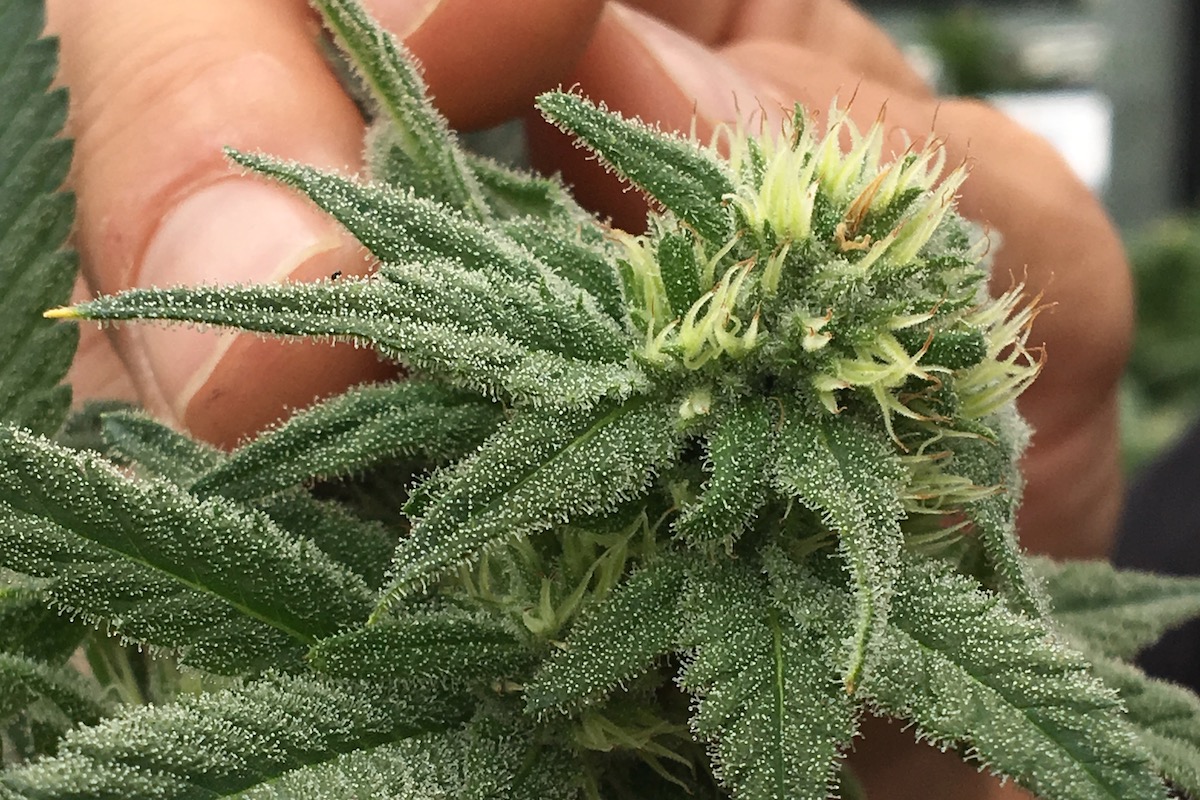Amid Pot Glut on the Market, Santa Barbara Supes Back Stiffer Tax Penalties
County Board of Supervisors Gets Tough with Growers Filing Taxes Late or Not at All

Against a backdrop of sinking cannabis tax revenues, the County Board of Supervisors took steps this month to get tough with growers who fail to report their revenues from cultivation or pay their quarterly taxes on time.
At a June 6 hearing, the board unanimously proposed that the county should not renew the business licenses of growers who miss even one quarterly deadline for tax reporting. The deadlines include a 30-day grace period. Since business licenses are valid for one year only, late filers would eventually be forced to shut down.
To date, the county has never failed to renew a single cannabis business license. The supervisors are set to vote on an amendment to the county’s 2018 cannabis ordinance on a first reading on June 27 in Santa Maria.
Brittany Odermann, deputy county executive officer, brought the suggested cannabis tax reporting penalties to the board for discussion at the request of Supervisor Joan Hartmann — whose district includes the Santa Rita Hills west of Buellton, where outdoor cannabis has moved into wine country — and Supervisor Laura Capps, who represents the Goleta Valley and is a newcomer to the board. Both had been meeting with county staff to design the proposal.
“I’ve been working on this since I started, and I was really getting so frustrated that it’s unpredictable when people pay and how much effort has to go into getting them to abide by the ordinance,” Capps said last week.
In the 2019 board elections, Capps ran and lost against Supervisor Das Williams, a chief architect of the cannabis ordinance and a resident of Carpinteria. The county has approved 33 industrial-scale cannabis greenhouse operations just beyond the city limits of the small beachside community during the past five years.
“I think the changes are long overdue, but here we are,” Capps said.
By some estimates, the prices for legal cannabis in California dropped 50 percent between 2017 and last summer. Amid an oversupply of wholesale product, customers are flocking to the black market, where prices for cannabis are 30 to 60 percent cheaper. In a sign of the failing economics of pot, four North County growers withdrew their county business licenses and abandoned their operations this spring.
The county projected $16 million in cannabis tax revenues for the 2022-23 fiscal year but collected only $4 million during the first three quarters, Odermann told the board. By the end of this month, the total for the fiscal year is projected to be just less than $6 million, just enough to cover the $5 million cost to the county this fiscal year for cannabis enforcement, tax collection, and legal counsel.
The county’s cannabis ordinance sets a 4 percent tax on gross receipts from cultivation, but every quarter, some growers don’t report or pay on time. County auditors must track them down, and it’s hard for budget analysts to predict how much money will be coming in.
Growers who are delinquent and make a late payment are presently required to pay 10 percent of the tax in addition to the tax. Some simply opt to pay the fees, Odermann said. The current ordinance does not penalize growers with zero revenues who fail to file quarterly reports on time or don’t file at all.
Of 69 growers countywide, 33 reported and paid their third-quarter taxes, and 24 reported zero gross receipts, or total revenues, Odermann told the board. Twelve failed to submit a timely third-quarter tax report, she said. Of those, three turned it in late, two were operating but did not file a report, and the rest had withdrawn from the business license approval process or surrendered their license.
In an interview, Odermann said it was not clear how much additional tax revenue the proposed new penalties might bring in. More likely, she said, they would force growers on the margin to withdraw altogether.
To identify growers who may be underreporting their cannabis revenues — a potentially more serious problem than late filers — the county relies on data from the state Cannabis Track-and-Trace system. Cannabis and cannabis products must be tagged or labeled by each grower; the system tracks their inventory and movement through the cannabis supply chain from cultivation to sale.
This fiscal year, tax revenues from what the board calls its “cannabis program” were earmarked for such services as libraries, parks, trails, open space, long-range planning, Mixteco translation, election administration, capital projects, and deferred maintenance.
Given the $10 million shortfall in the cannabis program for 2022-23, the board authorized the use of $8 million in non-cannabis tax revenues from the county’s general fund to cover those services, voting during budget hearings that began in April and concluded last Friday. Carryover cannabis tax revenues from previous years will make up the difference.
Cannabis tax revenues for the 2023-24 fiscal year are projected to be $7.5 million, the CEO’s office said. That will cover the anticipated $6 million cost of the cannabis program next year, plus $1.5 million in ongoing deferred maintenance projects. An additional $3 million in carryover cannabis tax revenues will fund a number of one-time projects in the coming fiscal year, including an employee housing study, park restroom upgrades, development of a utility-scale solar ordinance and lighting upgrades at the County Courthouse.
Melinda Burns is an investigative journalist with 40 years of experience covering immigration, water, science and the environment. As a community service, she offers her report to multiple publications in Santa Barbara County, at the same time, for free.



